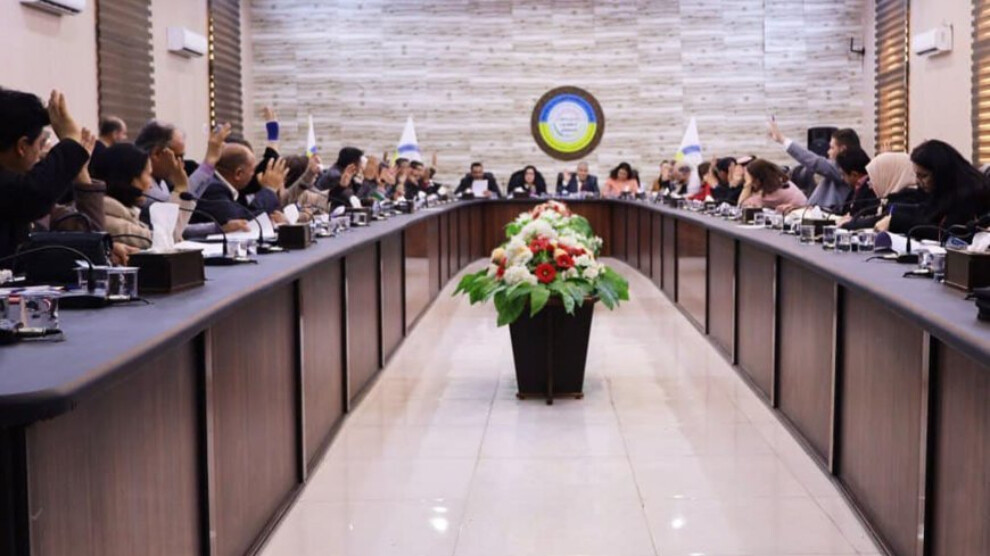Law on the establishment of the Social Contract Court approved
The Peoples' Assembly of the Democratic Autonomous Administration of North and East Syria approved a law on the establishment a court to protect the Social Contract.
The Peoples' Assembly of the Democratic Autonomous Administration of North and East Syria approved a law on the establishment a court to protect the Social Contract.

The Peoples' Assembly of the Democratic Autonomous Administration of North and East Syria approved the law on the establishment of a court for the protection of the Social Contract.
The law consists of 7 chapters and 11 articles and regulates the entire institutional structure of the court, from its hierarchical structure to its decision-making mechanism.
Law 93 entered into force after its approval by the Peoples' Assembly during a meeting attended by the Peoples' Assembly Co-Presidency and cantonal representatives.
The law entered into force as of the day it was approved.
The Social Contract of Democratic Autonomous Administration of the North and East Syria (DAANES) came into force on 12 December 2023 after a long democratic process of discussions involving the whole of society. The new text regulates the basic rights and freedoms of people and various ethnic groups and regulates the structure of democracy, self-defense and justice. The aim of the Social Contract is to create the framework for a decentralized administrative system in Northern and Eastern Syria. This applies in particular to the separation of powers and the protection of human rights. The new version of the Social Contract has been discussed in society since 2018, as the legislation passed two years earlier did not include the Arab regions of Raqqa, Tabqa, Manbij and Deir ez-Zor.
In 134 paragraphs, the new Social Contract renamed itself, changing from the Autonomous Administration into the Democratic Autonomous Administration of the Northern and Eastern Syria Region. In addition, the contract is a concrete design of social democracy adapting to current needs, starting from the neighbourhoods, through cities, cantons and up to the Democratic Council People. The councils are a mixture of representative elections and representatives of organized social groups such as ethnic groups, religious communities, women and youth. The system was further adapted to the needs of the region and society, from the basic municipality to the council, from the basic economy to the national economy, from health to education.
The new Social Contract adheres to the radical democratic principles of democratic autonomy. At the same time, the creation of an independent institution for financial supervision is planned to deal with the economic crisis and ensure solvency. A court should be set up to protect the Social Contract.
The Women's Council was explicitly included as a body in the most important articles of the social contract and thus legally protected.
The regional structure was also changed and will now consist of seven cantons: Cizîrê (Jazira), Euphrates, Raqqa, Tabqa, Deir ez-Zor, Manbij and Afrin-Shehba.